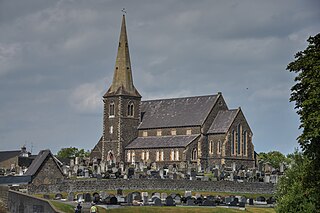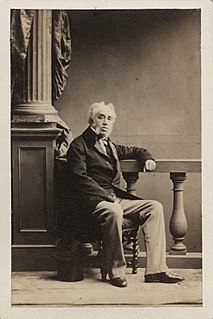
The Loyalist Volunteer Force (LVF) is a small Ulster loyalist paramilitary group in Northern Ireland. It was formed by Billy Wright in 1996 when he and his unit split from the Ulster Volunteer Force (UVF) after breaking its ceasefire. Most of its members came from the UVF's Mid-Ulster Brigade, which Wright had commanded. In a two-year period from August 1996, the LVF waged a paramilitary campaign in opposition to Irish republicanism and the Northern Ireland peace process. During this time it killed at least 14 people in gun and bomb attacks, almost all of them Catholic civilians killed at random. The LVF called off its campaign in August 1998 and decommissioned some of its weapons, but in the early 2000s a loyalist feud led to several killings. Since then, the LVF has been largely inactive, but its members are believed to have been involved in rioting and organized crime. In 2015, the security forces stated that the LVF "exists only as a criminal group" in Mid-Ulster and Antrim.

Sectarianism in Glasgow takes the form of long-standing religious and political sectarian rivalry between Roman Catholics and Protestants. It is particularly reinforced by the fierce rivalry between Celtic F.C. and Rangers F.C., the two largest Scottish football clubs together referred to as the Old Firm, whose support base is traditionally predominantly Catholic and Protestant respectively. A 2003 report for Glasgow City Council indicated that people clearly believe "sectarianism is still prevalent in Glasgow", but that members of the public were divided on the strength of the relationship between football and sectarianism.

The Twelfth is an Ulster Protestant celebration held on 12 July. It began in the late 18th century in Ulster. It celebrates the Glorious Revolution (1688) and victory of Protestant King William of Orange over Catholic King James II at the Battle of the Boyne (1690), which ensured a Protestant Ascendancy in Ireland. On and around the Twelfth, large parades are held by the Orange Order and Ulster loyalist marching bands, streets are bedecked with British flags and bunting, and large towering bonfires are lit in loyalist neighbourhoods. Today the Twelfth is mainly celebrated in Northern Ireland, where it is a public holiday, but smaller celebrations are held in other countries where Orange lodges have been set up.

Drumcree Parish Church, officially The Church of the Ascension, is the Church of Ireland parish church of Drumcree in County Armagh, Northern Ireland. It sits on a hill in the townland of Drumcree, outside Portadown. It is a site of historic significance and is a listed building.

Rathfriland is a market town in County Down, Northern Ireland.
The Defenders were a Catholic agrarian secret society in 18th-century Ireland, founded in County Armagh. Initially, they were formed as local defensive organisations opposed to the Protestant Peep o' Day Boys; however, by 1790 they had become a secret oath-bound fraternal society made up of lodges. By 1796, the Defenders had allied with the United Irishmen, and participated in the 1798 rebellion. By the 19th century, the organisation had developed into the Ribbonmen.

The Loyal Orange Institution, commonly known as the Orange Order, is an international Protestant fraternal order based in Northern Ireland and primarily associated with Ulster Protestants, particularly those of Ulster Scots heritage. It also has lodges in England, Scotland and the Republic of Ireland, as well as in parts of the Commonwealth of Nations, Togo and the United States. The Orange Order was founded by Ulster Protestants in County Armagh in 1795, during a period of Protestant–Catholic sectarian conflict, as a fraternity sworn to maintain the Protestant Ascendancy in Ireland. It is headed by the Grand Orange Lodge of Ireland, established in 1798. Its name is a tribute to the Dutch-born Protestant king William of Orange, who defeated Catholic king James II in the Williamite–Jacobite War (1688–1691). The order is best known for its yearly marches, the biggest of which are held on or around 12 July, a public holiday in Northern Ireland.

The Grand Orange Lodge of Scotland, or Loyal Orange Institution of Scotland, Orange Order in Scotland, The Orange Order is the oldest and biggest Protestant fraternity in Scotland. It is an organisation of people bonded together to promote the ideals of the Protestant faith. The Loyal Orange Institution was an official participant in the 2014 independence referendum. Its headquarters are in Bridgeton, Glasgow with 50,000 members in the Scottish Lowlands.
The South Armagh Republican Action Force shortened simply to the Republican Action Force for a small number of attacks in Belfast was an Irish republican paramilitary group that was active from September 1975 to April 1977 during the Troubles in Northern Ireland. Its area of activity was mainly the southern part of County Armagh. According to writers such as Ed Moloney and Richard English, it was a cover name used by some members of the Provisional IRA South Armagh Brigade. The journalist Jack Holland, alleged that members of the Irish National Liberation Army (INLA) were also involved in the group. During the same time that the South Armagh Republican Action Force was active the INLA carried out at least one sectarian attack that killed Protestant civilians using the covername "Armagh People's Republican Army". According to Malcolm Sutton's database at CAIN, the South Armagh Republican Action Force was responsible for 24 deaths during the conflict, all of whom were classified as civilians.
Events from the year 1849 in Ireland.
Events from the year 1830 in Ireland.
Parades are an important part of the culture of Northern Ireland. Although the majority of parades are held by Ulster Protestant, unionist or Ulster loyalist groups, Irish nationalist, republican and non-political groups also parade. The Parades Commission exists to settle disputes about controversial parades, and although not all parading groups recognise the Commission's authority, its decisions are legally binding.
The Orange Institution, better known as the Orange Order, is a Protestant fraternal organisation based in Northern Ireland. It has been a strong supporter of Irish unionism and has had close links with the Ulster Unionist Party, which governed Northern Ireland from 1922 to 1972. The Institution has lodges throughout Ireland, although it is strongest in the North. There are also branches throughout the British Commonwealth, and in the United States. In the 20th century, the Institution went into sharp decline outside Northern Ireland and County Donegal. Observers have accused the Orange Institution of being a sectarian organisation, due to its goals and its exclusion of Roman Catholics and close relatives of Catholics as members. The Order has a substantial fraternal and benevolent component.

The Drumcree conflict or Drumcree standoff is a dispute over yearly parades in the town of Portadown, Northern Ireland. The town is mainly Protestant and hosts numerous Protestant/loyalist marches each summer, but has a significant Catholic minority. The Orange Order insists that it should be allowed to march its traditional route to and from Drumcree Church on the Sunday before the Twelfth of July. However, most of this route is through the mainly Catholic/Irish nationalist part of town. The residents, who see the march as sectarian, triumphalist and supremacist, have sought to ban it from their area. The Orangemen see this as an attack on their traditions; they had marched the route since 1807, when the area was mostly farmland.

Robert Jocelyn, 3rd Earl of Roden,, styled Viscount Jocelyn between 1797 and 1820, was an Irish Tory politician and supporter of Protestant causes.

The Party Processions Act was an 1850 Act of Parliament in the United Kingdom which prohibited open marching, organised parades and sectarian meetings in Ireland in order to outlaw provocative movements in the wake of the Dolly's Brae fighting of 1849. Written on 8 February, the Act was assembled against people "in the practice of assembling and marching together in procession in Ireland in a manner calculated to create and perpetuate animosities between different classes of Her Majesty's Subjects, and to endanger the public peace." Actions such as using banners, emblems and flags constituted an offence, as did music "calculated or tend to provoke animosity". Violation of the Act was classed as a misdemeanor. The Act was strongly supported by Sir Robert Peel however opposed by other politicians such as Lord Claude Hamilton who argued that religious parades would also be outlawed, yet posed no threat. The Party Emblems Act was passed in 1860 to further support this measure following further riots at Derrymacash. The Act was "grudgingly" accepted by the Orangemen, however both the Irish Republican Brotherhood, the Young Ireland movement, and related Fenian movements were less placated. William Johnston of Ballykilbeg led a radical Orangemen group in defiance of the act during the 1860s, and was imprisoned – prompting strong demand for its repeal in 1867, which succeeded in 1872. The issue and repeal of the Act is viewed as an important milestone by nationalist historians of Ireland, and is said to be an example of Irish suppression by the "English" government. Peel, however, was one of a number of Members of Parliament who viewed the Act as a necessity to prevent Catholic and Protestant in-fighting rather than Irish nationalism as a whole. Traditional, revisionist and post-revisionist historians have subsequently supported either viewpoint and the Act remains a controversial one.

Orange marches are a series of parades by members of the Orange Order and other Protestant fraternal societies, held during the summer months in various Commonwealth nations, most notably Ulster. The parades typically build up to 12 July celebrations marking Prince William of Orange's victory over King James II & VII at the Battle of the Boyne in 1690.

The Tullyvallen massacre took place on 1 September 1975, when Irish republican gunmen attacked an Orange Order meeting hall at Tullyvallen, near Newtownhamilton in County Armagh, Northern Ireland. The Orange Order is an Ulster Protestant and unionist brotherhood. Five Orangemen were killed and seven wounded in the shooting. The "South Armagh Republican Action Force" claimed responsibility, saying it was retaliation for a string of attacks on Catholic civilians by Loyalists. It is believed members of the Provisional IRA carried out the attack, despite the organisation being on ceasefire.
Scottish-Irish Canadians are those who are Ulster Scots or those who have Ulster Scots ancestry and live in or were born in Canada. Ulster Scots are Lowland Scots and Northern English people who immigrated to the Irish Province of Ulster from the early 17th century after the accession of James I to the English throne. This was known as the Plantation of Ulster.
Walter Berwick (1800–1868) was an Irish judge, who perished in the Abergele rail disaster of 1868. He was a much loved public figure, especially in Cork, where he is commemorated by the Berwick Fountain on the Grand Parade in Cork city. He presided over the official inquiry into the Dolly's Brae conflict in 1849.













